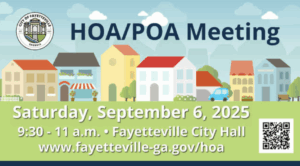The Fayette County Board of Education will hold a called meeting July 28 and likely vote on the application submitted by the Liberty Tech Charter School. If approved by the school board or by the Georgia Charter Schools Commission, Liberty Tech hopes to open its doors in the 2015-2016 school year.
Though little discussion occurred at the July 21 meeting, Superintendent Jody Barrow provided board members a copy of the executive summary analysis of the application performed by school system staff. Board members agreed to review the document and hold a called meeting on July 28 to discuss the findings.
Liberty Tech has listed the closed Brooks Elementary School as a possible site for its campus.
The school board will either approve or deny the petition. If the application is denied, Liberty Tech representatives can petition the Ga. Charter Schools Commission to have the application accepted. The intention is to open the school for the 2015-2016 school year.
The charter school expects to offer grades 3 through 8 to begin, and to expand to a full kindergarten through 12th grade within four years of opening.
Envisioned as a public, nonprofit charter school, Liberty Tech (LT) would infuse classical education with the Science, Technology, Engineering and Math (STEM) program and would partner academically with the University of West Georgia.
The executive summary posed two questions: Are innovations evident and different from what is routine practice within the county’s schools and what evidence exists that there is a pervasive need for the proposed school?
A sampling from the summary noted that Liberty Tech’s 210-day school year would provide additional instructional opportunities and the use of college students as tutors and their intent to grade a (personal virtue) curriculum are options not currently available in Fayette schools. The remaining strategies and practices listed as innovative are, for the most part, already in general practice in some form in Fayette schools, the report said.
Liberty Tech representative and Fayette County parent Christi McCully in response said, “I will agree that there are spatterings of our plan here and there but they are usually reserved for the gifted and talented students and not available to all. Research shows definitively that the type of engaging, innovative practices used in your (talented and gifted) program would be beneficial to all students. A recent article discussed the fact that most students drop out of school at ninth grade and that most of those students are kinesthetic learners. Our STEM plan approaches learning from many perspectives and learning styles. The teachers in Fayette we have discussed our plan with (and there are a lot) have all said how much they would love to do this but don’t have time in the 180-day schedule. Our 210-day (school year) gives us the time to be able to achieve this goal. So whereas there may be some of the practices in place, they are not across the board for all students.”
Liberty Tech’s intent to use practicing professionals from the science and engineering fields to bring real-world experience into the classroom, for example, is laudable, but not unique, the executive summary said. Fayette County’s students benefit from the experience of many teachers who have professional experience in the “real world.” In addition, LT’s intent is not without challenges. Since LT has included an assurance that all teachers will be certified, some of those individuals coming from the business world will need to earn teaching credentials in order to be fully certified. LT has acknowledged that those professionals will need to pursue an alternative path to certification, the school system summary said.
“Yes, we intend to take professionals from the workplace to further explain to students why they need to know what is taught and how it will help them. The Ga. Charter Schools Association has a program for such individuals to be certified that requires about three months and gives them three years to attain. It is to that certification process that we speak,” McCully said of the finding.
Concerning the STEM program, the summary said Liberty Tech outlines an intent to develop a hybrid curricular approach that will wed a classical set of studies with those of STEM. The classical studies noted are already available through Fayette County Schools as are classes and hands-on opportunities in the STEM area.
“Yes, Fayette has a fabulous Science Olympiad and Robotics team, but those teams only include a small percentage of the student body,” McCully said in response. “Our elementary Team Time is designed for all of our students to participate in. Not just a handful. We believe that all children benefit from this kind of involvement. Our projects in grades 7-12 are also STEM-based and make what the kids are learning in their regular classes engaging and relevant. STEM for LT is more than a robotics team or a Science Olympiad competition but those are elements of our program, albeit a small one. STEM is presenting math and science in a hands on relevant manner to capture students’ attention and excitement. Our math curriculum and some of the science was developed by the National Science Foundation. Allowing the students the opportunity to get A+ certified, earn ground certifications and engage in service learning are also practices that all of our 7-12 graders will have the opportunity to take to show students what a STEM education really is. What’s more is that all students, not just TAG kids, benefit from this model. All of our community partners are very excited about the approach and the types of graduates they see developed.”
A concern expressed in the summary was the absence of history in the elementary and early middle grades.
Responding to the finding, McCully said, “Perhaps the individual who read the petition missed a few paragraphs because under the elementary K-6 section it clearly states: ‘History is taught chronologically through each of the Trivium (systematic method of critical thinking) stages at higher levels each time. By a student’s final four years in school, their established body of knowledge will enable them to understand the motivations found in the great thinkers of the ancient past and today.’ There is no way a Classical school would ever venture to not include history, its lynchpin.”
The executive summary noted that, “Another area of curricular concern is foreign language. Although LT indicates that instruction in French will begin in kindergarten, and foreign language classes are largely absent from Fayette County elementary campuses, instruction fragmented into twice-weekly classes as part of a rotating schedule rarely results in proficiency. In addition, graduation from LT requires two years of a modern language and two years of Latin. Two years of a language falls short of the expectation of most highly selective universities that are looking for students who have completed at least three and preferably four years of study in the same language. Fayette County Schools currently offer foreign language beginning in grade 8 in order for a student to pursue studies in the same language in high school.”
Addressing the executive summary findings on foreign languages, McCully said, “ I found it amusing that the critique admitted that there was no foreign language at the elementary level in Fayette, but having two days a week created a disjointed system. So is he saying that it is better to not have foreign language at all? LT has addressed that issue with the use of Rosetta Stone online language instruction. We will have live teachers twice a week and homework on the computer daily to keep skills sharp. As far as high school is concerned, there are several points at which we discuss taking high school classes at eighth grade for credit. The foreign language listed is the minimum required. More is always appropriate and encouraged. We simply listed the required classes, as does Fayette. To my knowledge McIntosh is the only school to require Latin in the Fayette system. Once again this is required of all students.”











Leave a Comment
You must be logged in to post a comment.